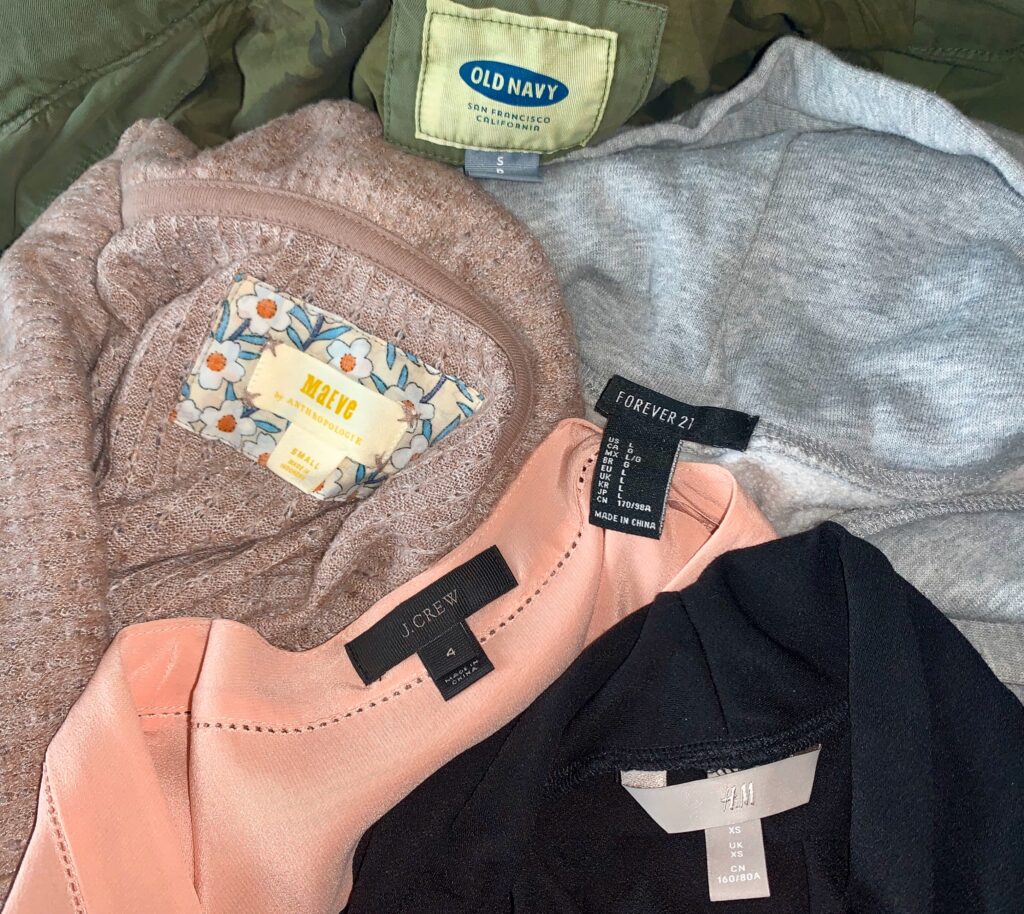
Fast fashion has taken over the fashion industry, and at the same time, it has put the environment as well as people in great danger. This article explores the essence of fast fashion and reasons why we all need to stop supporting it.
What is fast fashion?
Fast fashion is a term used to describe designs that are pulled directly from the runway and straight into the hands of common consumers at an extremely quick rate. Brands that fit into the fast fashion realm are always producing more products to keep up with the latest trends. In order for this to occur at the speed that it does, fast fashion clothing items are made from cheap materials and sold at very low prices.
How did this come about?
Clothing brands used to drop new styles four times a year with each season — fall, winter, spring, and summer — however, fast fashion has reshaped this custom, and many retailers push out new styles every week. Rather than four seasons, there are now 52 seasons. This new design model goes hand in hand with the start of online shopping. The constant production of new styles and endless sales encourages consumer culture which is rooted in impulse and the desire for quantity over quality. Fast fashion has also generated a throwaway culture.
Why is it bad?
There are many negative impacts of fast fashion. The most concerning ones include textile waste, exploitative labor practices, pollution, and public health hazards.
Millions of kilos of unwanted clothing end up in the landfill each year. Not only does textile waste include the waste produced by consumers, it also includes the amount companies waste in the production process as well as the waste that is produced from unsold clothing throughout stores.
Fast fashion is known for textile labor that involves children, poor working conditions, and very low wages. Many garment workers work in hazardous environments with a lack of basic human rights. In order to keep profit as high as possible, countries keep their minimum wage extremely low. This attracts fashion companies that want quick and easy labor. Throughout the world, only approximately two percent of fashion workers are paid a living wage. In addition to the poor working conditions, the industry makes large profits from the exploitation of BIPOC men and women. Of the 74 million textile workers in the world, 80 percent are women of color.
The fashion industry is one of the largest water polluters due to the use of cheap and toxic textile materials and dyes. Over eight percent of all global greenhouse-gas emissions are produced by the fashion industry, and approximately 20 to 25 percent of globally produced chemical compounds are used in the finishing process. These chemicals and toxins are often discharged directly into rivers and waterways, polluting and contaminating them. In addition, washing certain kinds of clothing sends small pieces of plastic into the ocean. Not only does the fashion industry contaminate bodies of water, it also uses a ton of water in the production process.
Many textile manufacturing sites are located along waterways of less fortunate and developing communities. Pollution of these areas has a harmful effect on the people living there. Most of the people in these communities are BIPOC, which makes this a social justice issue.
Who is part of this?
There are a countless amount of fast fashion brands, however, below is a list of the most prominent ones that have been deemed unethical, unreliable, and not sustainable in their practices.
- Zara
- H&M
- J.Crew and Madewell
- Gap and Old Navy
- Forever 21
- Primark
- Romwe
- Shein
- Nastygal
- Missguided
- ASOS
- Urban Outfitters, Free People, Anthropologie
What to do about it?
All of this information may seem overwhelming, but there is a lot you can do to help make a change. First and foremost, it is important to recognize and understand where your clothing comes from. Do some research and educate yourself — learn about where you get your clothes and change your habits if necessary. Unfollow and unsubscribe from fast fashion brands once you have identified them. Next, be mindful of the textile waste you may be producing. Try to rewear and reuse what you already own. When you do shop, however, shop less and with more intention. Do not buy clothes just because it is an activity, only buy clothes when you need to. If you are going to buy something, think of quality over quantity. If you are unable to buy quality clothing, consider buying second hand. Finally, support sustainable, ethical, and inclusive clothing brands. Your support will help them become the industry leaders.
There is no longer an excuse for shopping from fast fashion brands. We know the negative impacts, and there are so many alternatives. Together, let’s end fast fashion!